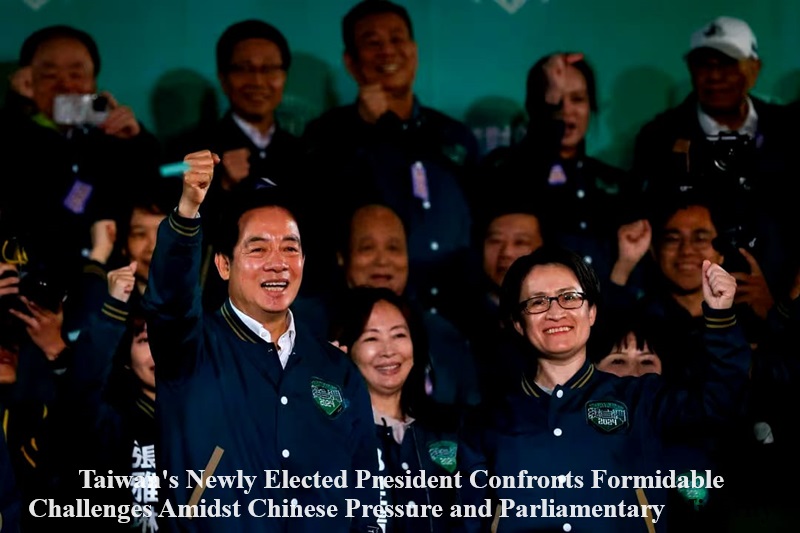
Taiwan’s president-elect, Lai Ching-te, is anticipated to confront a challenging four-year term, lacking a parliamentary majority and contending with opposition’s desire to revive a contentious service trade agreement with China, coupled with the constant specter of military threats from Beijing. Despite Lai’s victory by a substantial margin on Saturday, the Democratic Progressive Party (DPP) lost control of the parliament, crucial for passing legislation and budgets during his tenure set to commence on May 20.
China swiftly seized the opportunity to underscore that the majority of voters did not support Lai, as indicated by its Taiwan Affairs Office, asserting that the DPP fails to represent the mainstream public opinion on the island. While not explicitly naming Lai, the remarks echo the pre-election period when Beijing frequently labeled him a perilous separatist. The situation intensifies concerns, with observers like Lin Fei-fan, a former DPP deputy secretary general now part of a party think tank, expressing notable apprehension about the new government’s prospective difficulties, particularly in dealing with China-related matters.
Lin Fei-fan elaborated in an interview with Reuters, stating he is “fairly worried” about the challenges ahead, foreseeing a “very tough” four-year term for the incoming administration, particularly regarding issues related to China. The absence of parliamentary control and the potential resurgence of the service trade deal with China further complicates Lai’s leadership, setting the stage for a complex and delicate diplomatic landscape during his presidency.

Post Your Comments